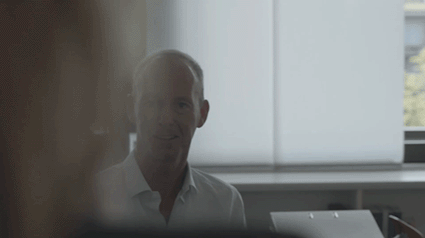Interview with
Thomas Rabe
Thomas Rabe
Thomas Rabe
Chairman and CEO of Bertelsmann
Chairman and CEO of Bertelsmann
Thomas Rabe
Chairman and CEO of Bertelsmann
Chairman and CEO of Bertelsmann
Bertelsmann Chairman and CEO Thomas Rabe on the 2022 financial year, the state of the company, and its path to the future
»All in All, Bertelsmann is in Excellent Shape«
Mr. Rabe, looking back, how would you rate the year 2022?
The political and economic environment has rarely been as difficult and confusing as it was last year. Whether it’s Covid, the Ukraine war, high inflation with massively rising energy and raw material costs or declining purchasing power – rarely have there been so many and such major challenges at once. And yet we still managed to deliver a successful business year.
So how did Bertelsmann do last year?
Bertelsmann has learned to manage crises and is proving to be a rock in the storm. We have never had such high revenues, never been so financially strong and never had so many employees. Specifically, Bertelsmann ended the financial year 2022 with revenues of €20.2 billion – the highest in our 188-year history. The significant increase in revenues enabled us to keep Operating EBITDA stable at the previous year’s level of €3.2 billion. It exceeded the €3 billion mark for the third time in succession. At over €1 billion, group profit once again exceeded the billion-euro mark. Bertelsmann is also well equipped with €15 billion in equity. The number of employees grew by around 20,000 to 165,000. So, Bertelsmann is in excellent shape overall.
And this despite some projects that weren’t successfully completed in 2022...
It’s true that after many major successes in the past decade, we have recently been unable to complete several strategic projects. Unfortunately. However, this was not so much because of us or because the plans were wrong. It was due to the opposition of the antitrust authorities. For example, the proposed acquisition of Simon & Schuster by Penguin Random House was opposed in a lawsuit by the U.S. Department of Justice, which was upheld by the U.S. District Court. In the case of the TV mergers in France and the Netherlands, the authorities were not willing to take into account the massive changes in the advertising markets – instead, they stuck to their historical market definitions. Perhaps we were simply too early with our plans.
What do you mean?
In view of the competition with tech platforms, the pressure to consolidate is increasing in the European media markets. Consolidation will happen, sooner or later. Our strategic ventures would have created a lot of value and given us a decisive competitive advance. Through more investment in content, our streaming services and technology. Now and for the time being, we will have to take other paths, with alliances and partnerships in areas like ad sales, technology, data and content.
What is the next strategic step?
We are pursuing the right strategy, which has led to Bertelsmann being a faster-growing, more international, more digital and more diversified company today. We are focusing on our five strategic priorities – National Media Champions, Global Content, Global Services, Education, Investments. We will use the Boost strategy to lift Bertelsmann to a new level of revenues and earnings by 2026. The company will invest a total of 5 to 7 billion euros in new growth by then. Since launching Boost, we have already invested €2.2 billion, €1.6 billion of that in 2022 alone.
Where are you getting all these billions?
Bertelsmann is in good financial shape; our overall debt is low and we are highly profitable. We have considerable financial room for maneuver for our existing businesses and for new businesses that we intend to build up in the coming years.
Are there any concrete examples of Boost investments yet?
The implementation of Boost is in full swing across the Group. Examples range from the accelerated expansion of streaming at RTL to several acquisitions and share increases by Fremantle, to the acquisition of iconic music catalogs by BMG and smaller publishing acquisitions by Penguin Random House around the world; they range from the expansion and automation of the network of sites at Arvato SCS to the acquisition of a controlling interest in Afya, to the expansion of our global network of funds and the establishment of Bertelsmann Next around the focus areas of Digital Health, App Economy and HR Tech.
What are your financial targets with Boost?
By 2026, thanks to Boost, we want to achieve sales of €24 billion, EBITDA of €4 billion and net profit of €2 billion. These are ambitious targets. But we can achieve them.
Before that happens – how do you want Bertelsmann to look at the end of this year?
For 2023, we expect a moderate to significant increase in our revenues and our operating profit to remain stable at a high level. The environment remains challenging, but we have a clear plan.









